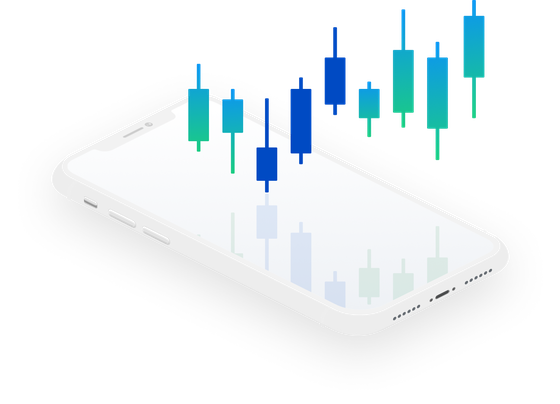Spreads and margins
We offer competitive spreads across our full range of forex and CFD markets, including indices, commodities, cryptocurrencies, metals and bonds.
See our margin table for margin rates and leverage ratios on all our currency pairs and CFD instruments for retail clients. OANDA Trade requires a specific margin to be available in your account for each currency pair or CFD you trade in.


Events impacting spreads
At certain times and in certain market conditions, our spreads could be wider than usual. This includes:
- Opening and closing of markets.
- Major international or geopolitical events.
Be on top of the latest market events with our Market News and Information section.
Margin trading
Australian margin requirements are governed by the Australian Securities and Investments Commission (ASIC) under ASIC Corporations (Product Intervention Order - Contracts for Difference) Instrument 2020/986. Find out more
We offer clients the ability to trade with leverage. This means that you can enter into trades larger than your account balance and trade without depositing the full value of the trade that you wish to open. One of the benefits of trading with leverage is that you could potentially generate large profits relative to the amount invested. On the other hand, trading with leverage could also result in significant, rapid losses to your capital.
We take a form of security (or deposit) against any losses that you may incur when you trade. This collateral is typically referred to as margin. The margin needed to open each trade is derived from the leverage limit associated with both your account type and the instrument you wish to trade.
Under ASIC Order 2020/986 leverage levels for Australian retail clients is restricted to 30:1.
How margin trading works
The OANDA fxTrade platform supports margin trading, which means you can enter into positions larger than your account balance. One advantage of margin-based trading is that you can leverage the funds in your account and potentially generate larger profits relative to the amount invested. The downside is that you can potentially incur significant losses in your margin capital very quickly.
To ensure you can cover any losses you might incur on your positions, OANDA requires sufficient collateral. This collateral is typically referred to as margin. Although there is no minimum margin deposit required to open an fxTrade account with OANDA, the margin available in your account will limit the size of the positions you can open and will affect when you receive a margin alert and possible margin closeout. A margin closeout is the situation when the fxTrade platform automatically closes ALL of your open positions in the affected account, to significantly decrease the probability of losing more than the amount of collateral in your account.
The term leverage is often used to describe the margin requirements. A leverage of 30:1 corresponds to a margin requirement of 3.33% (1 divided by 30 is 0.0333 or 3.33%). A 3.33% margin requirement means that, if you wish to open a new position, then you must have 3.33% of the size of that position available as margin.
Ready to start trading? Open an account in minutes
Already have a live trading account? It's easy to fund your account using one of the following payment methods.





Frequently asked questions
How do market events and weekends impact margin?
Price volatility and changes in global market liquidity can result in large spread increases around market openings and closings, following news announcements, and during times of uncertainty. At such times, our spreads usually widen to reflect market conditions. However, there may be occasions during which we opt to implement a fixed spread rather than allowing a spread to continue to widen.
If you leave trades open during the weekend or before markets close, or in the event that a particular market is suspended, you cannot close them until the markets reopen. Note that prices may change significantly or "gap" when trading resumes. If prices move against you, a margin closeout may be triggered when trading resumes if you have insufficient funds on your account to support your trading.
Spreads (the difference between the bid price and ask price) typically widen just prior to closure of the markets, and when they open, to reflect decreased liquidity in the global markets. These widened spreads could trigger stop-loss orders or margin closeouts when a position is open at this time.
What is a margin call?
Margin calls are an important aspect of leveraged trading. If the Net Asset Value (NAV) in your account falls below your margin requirements, a margin call will be triggered. If this happens, you might want to consider adding more funds to your account or closing positions to make sure your account balance is greater than the margin required to maintain open positions.
What happens with a margin closeout?
You must maintain sufficient funds (collateral) in your account to support your open positions. You are responsible for monitoring your account to prevent margin closeouts. A margin closeout will be triggered when the Margin Closeout Value declines to half, or less than half, of the Margin Used. The fxTrade platform will try to alert customers who are signed in to the fxTrade platform when the Margin Closeout Value falls within 5% of a margin closeout, and again when the Margin Closeout Value falls within 2.5% of a margin closeout. In addition, at 4 am Singapore time each trading day, OANDA will send daily emails to accounts that fall below margin requirements for their aggregate open positions and are at risk of approaching a margin closeout.
Please note: in a fast moving market, there may be little time between warnings, or there may not be sufficient time to warn you at all. Be mindful of the “Margin Closeout Percent” field in the Account Summary of the fxTrade user interface. The closer the Margin Closeout Percent is to 100%, the closer you are to a margin closeout.
If trading is unavailable for certain open positions at the time of the margin closeout, those positions will remain open and the fxTrade platform will continue to monitor your margin requirements. When the markets reopen for the remaining open positions, another margin closeout may occur if your account remains under margined.
How is margin calculated?
When you have open trades for many different currency pairs, your account’s margin requirement is calculated by weighting the margin requirements for the various trades at their respective size and rates. If this calculation is less than the margin requirement for the leverage set on your account, it takes precedence (if it is higher, then your default leverage is used). For example, if you are trading pairs with a minimum 5% margin rate (or 20:1 leverage) and you’ve set your leverage at 10:1, the required margin will be 10% rather than the 5% minimum required by regulation. See more detailed information on how to calculate margin.
How can I avoid margin closeouts?
Take proactive measures to avoid getting a margin closeout on your account. For example:
- Monitor the status of your account continuously.
- Use a lower leverage so you can impose a higher margin requirement on yourself. This way, you will not be tempted to enter into positions beyond your comfortable leverage level. You will also be aware of a potential margin closeout sooner, and be able to increase leverage as a last resort to head it off.
- Specify a stop-loss order for each open trade to limit downside risk. You can specify the stop-loss rate at the time you issue a trade, or add a stop-loss order at any time for any open trade. You can also change your stop-loss orders at any time to take current market prices or other conditions into account. (Click on an open trade in the "Trades" table, then click "Modify" in the pop-up window to change the stop-loss.)
Note: Your trade is closed at the current fxTrade rate, which may vary from your stop loss price -- especially when trading resumes after periods of market closure.
If you happen to be close to a margin closeout, the unique features of the fxTrade platform provide some simple strategies to avoid it:
- Incrementally reduce the size of your positions as you get close to a margin closeout. (fxTrade allows you to trade in arbitrary units, as opposed to fixed lots, which makes this simple to do.)
- Close individual positions to reduce the amount of margin required.
- If you are using a lower leverage, you can increase the leverage on your account as a last resort.
- Transfer additional funds into the account from another sub account.
- Add funds to the account. Note, however, that the time it takes to add funds could mean your funds arrive too late.
Transparent trading costs
We are upfront about our fees so you know how much you are paying when you trade with us.
What are financing costs?
Financing costs can affect your cost of trading, so it's important to understand how financing works.
When can I trade with OANDA?
Our operation hours coincide with the global financial markets. Find out when you can trade with us.